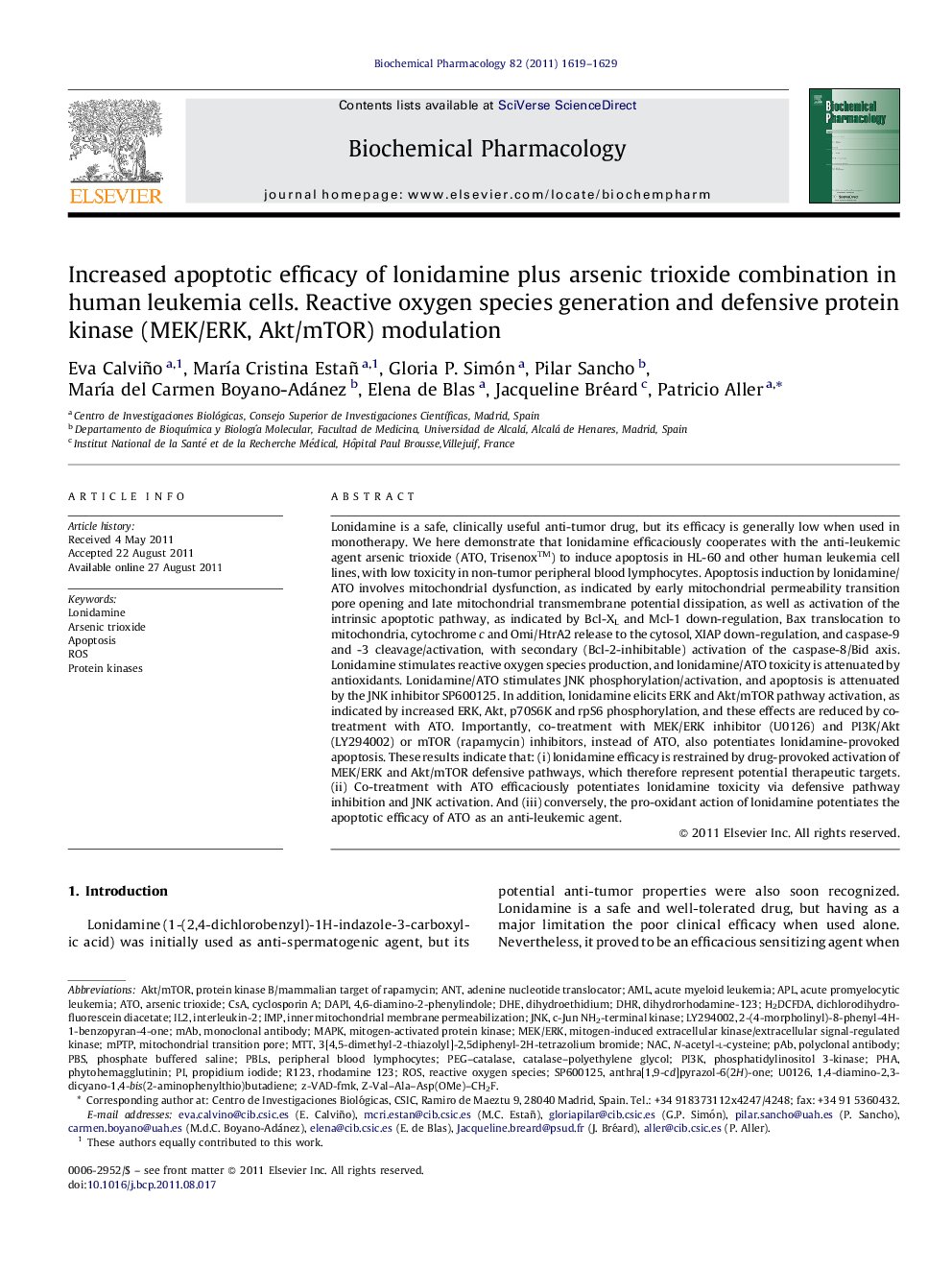| کد مقاله | کد نشریه | سال انتشار | مقاله انگلیسی | نسخه تمام متن |
|---|---|---|---|---|
| 2513028 | 1118389 | 2011 | 11 صفحه PDF | دانلود رایگان |

Lonidamine is a safe, clinically useful anti-tumor drug, but its efficacy is generally low when used in monotherapy. We here demonstrate that lonidamine efficaciously cooperates with the anti-leukemic agent arsenic trioxide (ATO, Trisenox™) to induce apoptosis in HL-60 and other human leukemia cell lines, with low toxicity in non-tumor peripheral blood lymphocytes. Apoptosis induction by lonidamine/ATO involves mitochondrial dysfunction, as indicated by early mitochondrial permeability transition pore opening and late mitochondrial transmembrane potential dissipation, as well as activation of the intrinsic apoptotic pathway, as indicated by Bcl-XL and Mcl-1 down-regulation, Bax translocation to mitochondria, cytochrome c and Omi/HtrA2 release to the cytosol, XIAP down-regulation, and caspase-9 and -3 cleavage/activation, with secondary (Bcl-2-inhibitable) activation of the caspase-8/Bid axis. Lonidamine stimulates reactive oxygen species production, and lonidamine/ATO toxicity is attenuated by antioxidants. Lonidamine/ATO stimulates JNK phosphorylation/activation, and apoptosis is attenuated by the JNK inhibitor SP600125. In addition, lonidamine elicits ERK and Akt/mTOR pathway activation, as indicated by increased ERK, Akt, p70S6K and rpS6 phosphorylation, and these effects are reduced by co-treatment with ATO. Importantly, co-treatment with MEK/ERK inhibitor (U0126) and PI3K/Akt (LY294002) or mTOR (rapamycin) inhibitors, instead of ATO, also potentiates lonidamine-provoked apoptosis. These results indicate that: (i) lonidamine efficacy is restrained by drug-provoked activation of MEK/ERK and Akt/mTOR defensive pathways, which therefore represent potential therapeutic targets. (ii) Co-treatment with ATO efficaciously potentiates lonidamine toxicity via defensive pathway inhibition and JNK activation. And (iii) conversely, the pro-oxidant action of lonidamine potentiates the apoptotic efficacy of ATO as an anti-leukemic agent.
Figure optionsDownload as PowerPoint slide
Journal: Biochemical Pharmacology - Volume 82, Issue 11, 1 December 2011, Pages 1619–1629